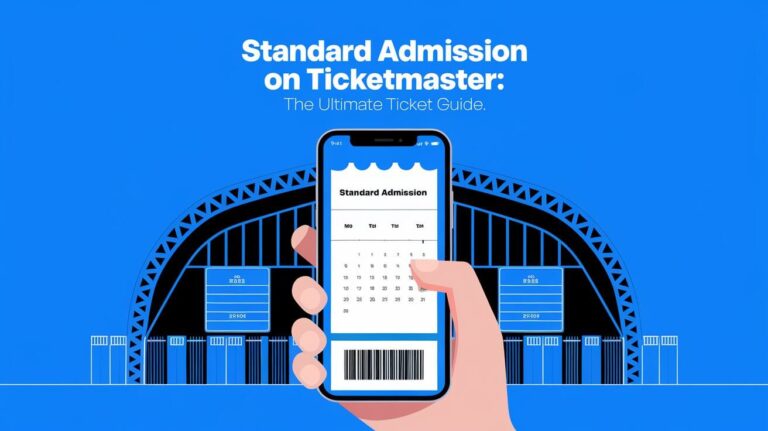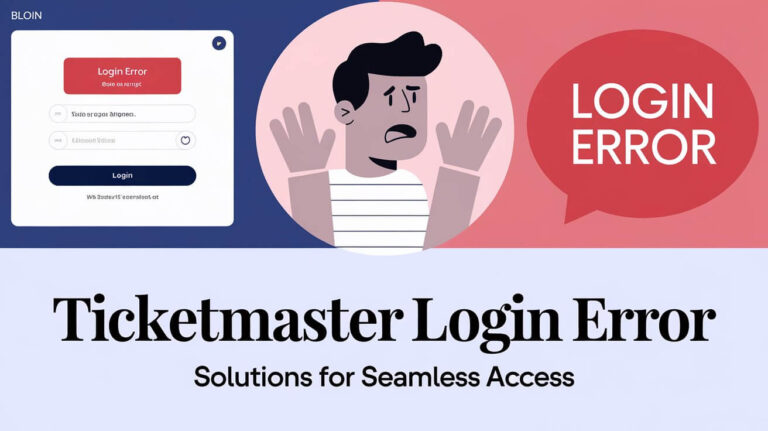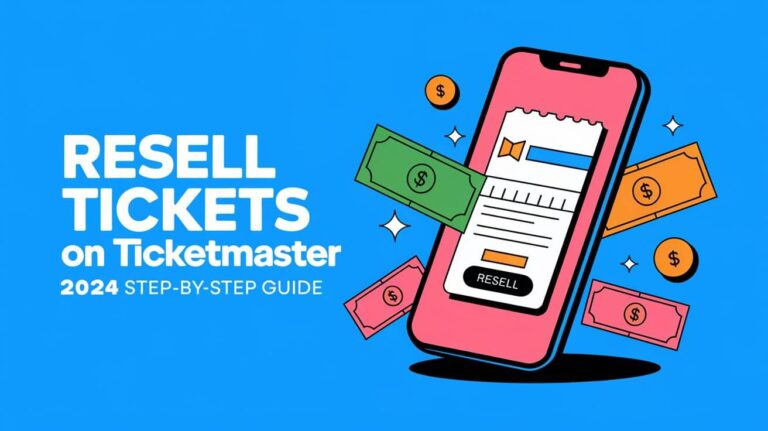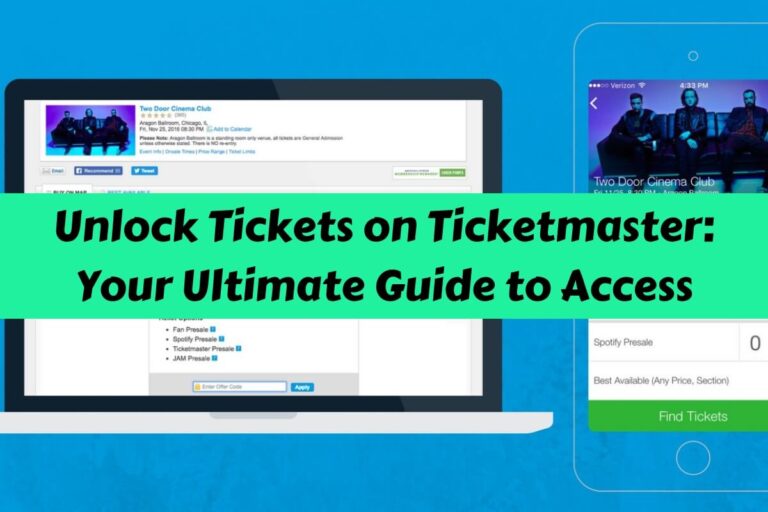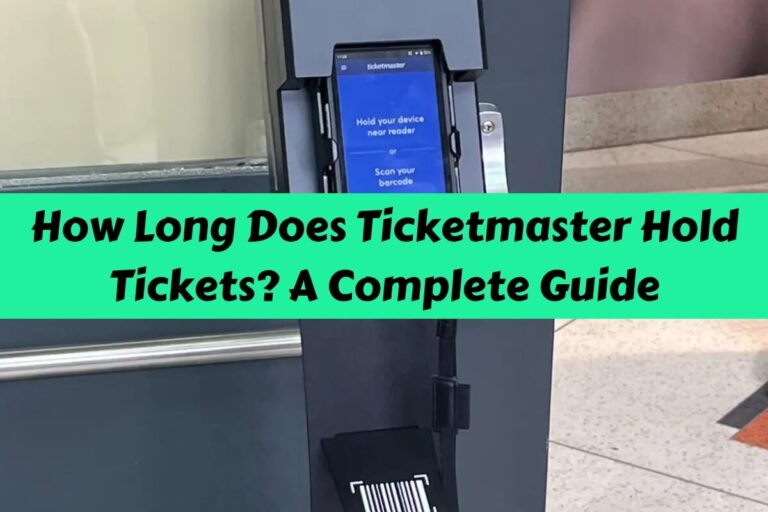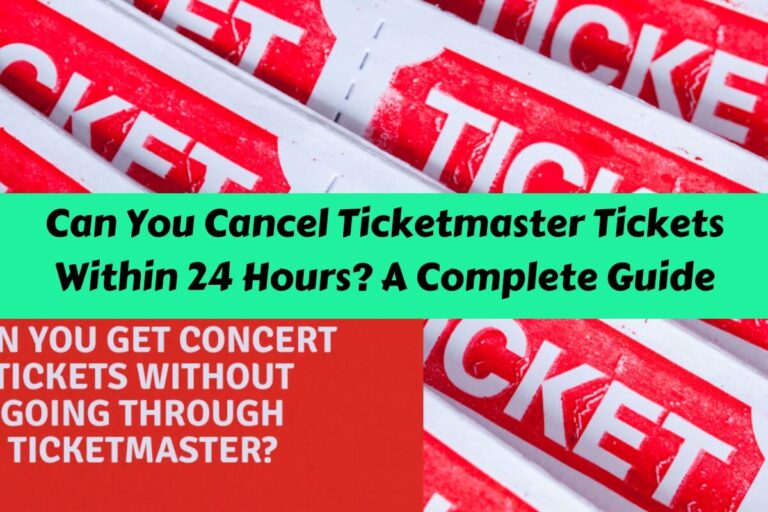
Ticketmaster, the giant of online ticket sales, often leaves fans wondering: will Ticketmaster release more tickets for sold-out events? The answer isn’t always straightforward, but there’s hope for those who missed out on initial sales. This guide explores the ins and outs of Ticketmaster’s ticket release process, helping you navigate the often confusing world of event ticketing.
Understanding Ticketmaster’s Ticket Release Process
Ticketmaster’s approach to releasing tickets isn’t as simple as putting all available seats up for grabs at once. Let’s break down how it works.
Initial ticket sales and presales
When an event first goes on sale, Ticketmaster typically doesn’t release all tickets immediately. Instead, they often use a tiered system:
- Presales for fan clubs, credit card holders, or other special groups
- General public on-sale date
- Potential additional releases later on
This staggered approach helps manage demand and gives different groups a fair shot at tickets.
Why some tickets are held back
Ticketmaster often hold back a portion of tickets for various reasons:
- Artist or team allocations
- Production holds for stage setup
- Venue and promoter reserves
- Potential VIP packages
These held tickets might become available later, depending on several factors.
Factors influencing additional ticket releases
Several elements can determine whether Ticketmaster releases more tickets:
- Unexpected changes in stage or seating layout
- Returned tickets from fan clubs or sponsors
- Cancelled VIP packages
- Demand exceeding initial expectations
Understanding these factors can help you gauge the likelihood of more tickets becoming available.
Signs That Ticketmaster Might Release More Tickets
Staying alert for certain signs can increase your chances of snagging newly released tickets.
Official announcements and notifications
Ticketmaster sometimes makes official announcements about additional ticket releases. Keep an eye on:
- Ticketmaster’s website
- Email notifications (if you’ve signed up)
- Official event pages
These sources often provide the most reliable information about new ticket availability.
Social media hints and teasers
Artists, venues, and even Ticketmaster itself might drop hints on social media about upcoming ticket releases. Follow:
- The artist’s official accounts
- The venue’s social media profiles
- Ticketmaster’s social channels
Sometimes, a cryptic post or a sudden surge in activity can signal impending ticket releases.
Changes in event status on Ticketmaster
Regularly checking the event page on Ticketmaster can reveal subtle changes that hint at new tickets:
- Status changes from “Sold Out” to “Limited Availability”
- New ticket types or seating sections appearing
- Updates to the event description or details
These changes often precede additional ticket releases.
When Does Ticketmaster Typically Release Additional Tickets?
Timing is crucial when it comes to snagging newly released tickets. Here’s when to be on high alert.
Weeks before the event
Ticketmaster might release tickets several weeks before the event due to:
- Finalized production details freeing up more seats
- Cancelled group bookings or packages
- Strategic decisions to meet demand
Keep checking regularly in the weeks leading up to the show.
Days leading up to the event
As the event draws near, there’s often a flurry of activity:
- Last-minute production holds released
- Returned tickets from various allocations
- Adjustments to meet sales targets
The week of the event can be a goldmine for additional ticket releases.
Last-minute releases
Don’t give up hope even on the day of the event. Last-minute releases can happen due to:
- Cancelled VIP packages
- No-show ticket returns
- Final seating adjustments
Sometimes, patience pays off with a last-minute ticket score.
Types of Tickets Ticketmaster Might Release
Not all released tickets are created equal. Here’s what you might find in additional releases.
Production hold tickets
These are often some of the best seats in the house:
- Reserved for potential use by production teams
- May have excellent views of the stage
- Usually released when no longer needed for technical purposes
Keep an eye out for these premium seats in late releases.
Artist and team allocations
Tickets initially held for the performer or team might become available:
- Often include prime seating locations
- May be released if not needed by the artist or team
- Can appear at any time, even close to the event date
These can be a great opportunity to snag excellent seats.
Seats with limited views
Sometimes, additional releases include seats with restricted views:
- May be behind stage equipment
- Could have partial views of the performance
- Often priced lower than standard tickets
While not ideal, these can be a way to get into a sold-out show.
How to Increase Your Chances of Getting Released Tickets
Being prepared and proactive can significantly boost your odds of securing newly released tickets.
Setting up Ticketmaster alerts
Ticketmaster offers ways to stay informed:
- Create an account and set up event notifications
- Opt-in for email alerts about your favorite artists
- Enable push notifications on the Ticketmaster app
These alerts can give you a crucial head start when new tickets drop.
Following artists and venues on social media
Social media can be a goldmine of ticket information:
- Follow official artist pages for announcements
- Keep an eye on venue accounts for local updates
- Join fan groups for insider tips and quick alerts
Sometimes, fans share information about releases before official channels do.
Checking Ticketmaster regularly
Persistence often pays off:
- Set reminders to check Ticketmaster daily
- Look for changes in ticket availability status
- Be ready to act quickly if new tickets appear
Regular checking increases your chances of spotting new releases as soon as they happen.
Alternative Ways to Get Tickets if Ticketmaster Doesn’t Release More
If Ticketmaster doesn’t come through with more tickets, don’t lose hope. There are other options to explore.
Fan-to-fan resale platforms
Ticketmaster and other sites offer fan resale options:
- Often guarantees the authenticity of tickets
- May have tickets at face value or slightly above
- Can be a safer option than unverified resellers
Keep checking these platforms as the event approaches.
Third-party ticket marketplaces
While requiring caution, these can be a last resort:
- Compare prices across multiple sites
- Be wary of extremely high markups
- Verify the legitimacy of the marketplace
Always prioritize safety and authenticity when using third-party sellers.
Last-minute box office availability
Sometimes, showing up at the venue can pay off:
- Check for day-of-show ticket releases
- Ask about canceled reservations or no-shows
- Be prepared for potential long waits or disappointment
This method requires flexibility and a bit of luck, but can sometimes result in great last-minute finds.
The Impact of Demand on Additional Ticket Releases
The popularity of an event plays a big role in whether more tickets become available.
High-demand events vs. less popular shows
For sold-out, high-demand shows:
- Additional releases are more likely but sell out fast
- Competition for newly released tickets is fierce
- Prices may be higher due to dynamic pricing
Less popular events might have steadier ticket availability but fewer dramatic releases.
How scalpers affect ticket availability
Scalpers can complicate the ticket release process:
- They may quickly buy up newly released tickets
- This can lead to artificial scarcity
- Ticketmaster has measures to combat scalping, but it remains an issue
Understanding this dynamic can help set realistic expectations about additional releases.
Ticketmaster’s Policies on Ticket Releases and Availability
Knowing Ticketmaster’s official stance can provide insight into the release process.
Official statements on additional releases
Ticketmaster’s policies state:
- They may release additional tickets at any time
- Not all tickets are available when sales begin
- Release timing is often at the discretion of the event organizer
These policies give Ticketmaster flexibility in managing ticket releases.
Transparency in ticket allocation
Ticketmaster has faced criticism over transparency:
- They’ve made efforts to clarify how tickets are allocated
- Information about percentages of tickets available in initial sales is sometimes provided
- Transparency efforts are ongoing but still leave some questions unanswered
Understanding these policies can help manage expectations about potential releases.
Common Misconceptions About Ticketmaster Releasing More Tickets
Several myths circulate about Ticketmaster’s ticket release practices. Let’s clear them up.
The myth of “hidden” tickets
Many believe Ticketmaster hides tickets to drive up prices:
- While tickets are held back, it’s usually for legitimate reasons
- Dynamic pricing can give the impression of “hidden” inventory
- Ticketmaster denies deliberately withholding tickets to manipulate prices
Understanding the real reasons for held tickets can alleviate frustration.
Misunderstanding presale allocations
Presales often lead to confusion:
- Not all tickets are available during presales
- Presale allocations don’t necessarily mean fewer tickets for general sale
- Different presales may have access to different ticket pools
Knowing how presales work can help in planning your ticket-buying strategy.
Tips for Preparing for Potential Ticket Releases
Being ready when tickets drop can make all the difference.
Creating a Ticketmaster account in advance
Don’t wait until tickets go on sale:
- Set up your account well in advance
- Verify your email and phone number
- Familiarize yourself with the site’s layout and functions
Having an established account can speed up the purchase process.
Saving payment information for quick checkout
Every second counts when buying hot tickets:
- Save multiple payment methods to your account
- Ensure your credit card details are up to date
- Consider using services like PayPal for faster checkout
Quick payment can be the difference between scoring tickets and missing out.
Understanding the queuing system
Ticketmaster’s queue can be confusing:
- Know that your place in line is often randomized
- Understand that being first in the waiting room doesn’t guarantee first access
- Be prepared to wait, sometimes for extended periods
Patience and persistence are key when dealing with the queue system.
The Future of Ticket Releases: Trends and Predictions
The ticketing industry is always evolving. Here’s what might be on the horizon.
Dynamic pricing and its effect on releases
Dynamic pricing is becoming more common:
- Prices may fluctuate based on demand
- This could lead to more frequent, smaller ticket releases
- It might affect how and when additional tickets are made available
Understanding dynamic pricing can help in timing your ticket purchases.
Technology advancements in ticket distribution
New tech is changing how tickets are sold and distributed:
- Blockchain technology might increase transparency and reduce fraud
- AI could help in more equitable ticket distribution
- Mobile-only tickets may become the norm, affecting how last-minute releases work
Staying informed about these trends can help you adapt to future ticket-buying scenarios.
Conclusion: Staying Informed About Ticketmaster Ticket Releases
The question “Will Ticketmaster release more tickets?” doesn’t have a simple answer. It depends on various factors, from artist decisions to venue logistics. However, by staying informed, being prepared, and understanding how the system works, you can increase your chances of snagging tickets to your must-see events.
Remember to:
- Stay alert for official announcements
- Keep checking Ticketmaster regularly
- Be ready to act quickly when new tickets appear
- Consider alternative options if Ticketmaster releases don’t pan out
With patience, persistence, and a bit of luck, you might just find yourself with tickets to that sold-out show you’ve been dying to see. Happy ticket hunting!

